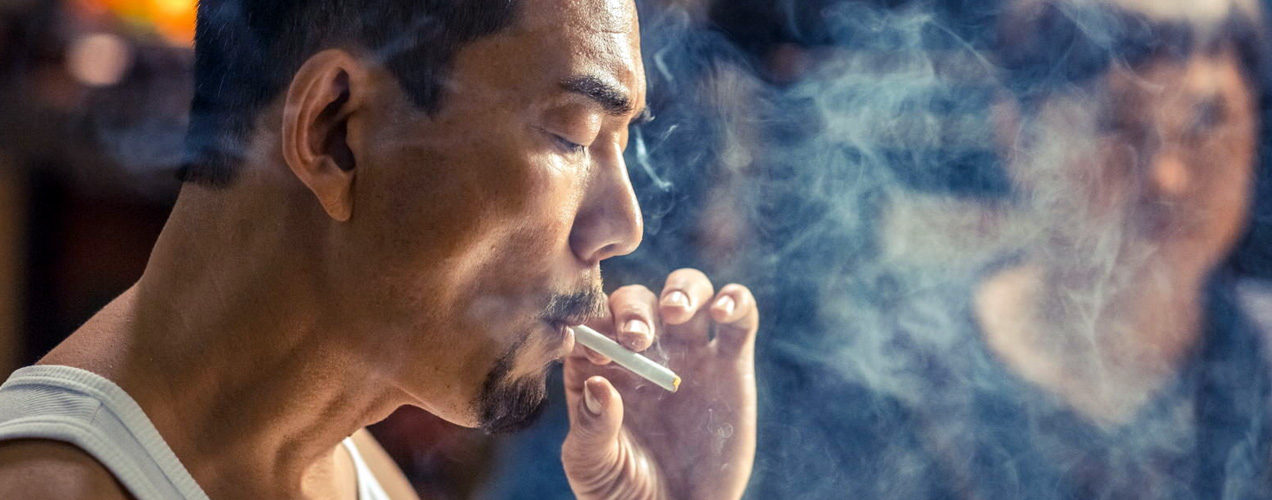2016 / Johnnie To > The future of post-Johnnie To cinema in Hong Kong has gotten off to a promising start with his proteges already showing a grasp of the master’s technical expertise and sound fundamentals. While the three individual stories don’t fully represent the tension surrounding the island’s handover to the mainland, each director’s take on the changing criminal environment is intriguing though not as fully realized as previous To films. In short, this is a lighter, shallower version of classic Hong Kong crime fare but one that is still an enjoyable watch.
Category Archives: Hong Kong/China
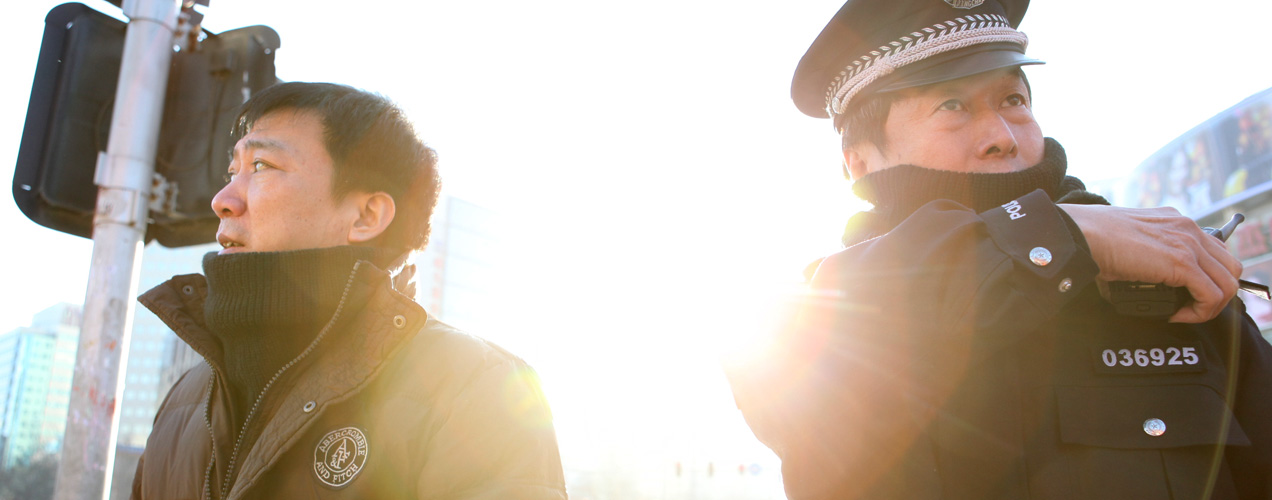
Beijing Blues

 2012 / Gao Qunshu > Beijing vs. Shanghai is always a fascinating study. It’s as if the higher ups in the government decided to draw a line between fun and no fun, between smiling and being a square, between the West and the East. And no matter how adventurous the barrage of insects on a stick outside Tiananmen Square is compared to The Bund, Beijing still comes off as the cold, bitter and smoggy brother of its brethren.
2012 / Gao Qunshu > Beijing vs. Shanghai is always a fascinating study. It’s as if the higher ups in the government decided to draw a line between fun and no fun, between smiling and being a square, between the West and the East. And no matter how adventurous the barrage of insects on a stick outside Tiananmen Square is compared to The Bund, Beijing still comes off as the cold, bitter and smoggy brother of its brethren.
Maybe that’s why Beijing Blues is so incising: the city that holds itself like a cold, locked down safe is cut in half. It shows its weaknesses through the eyes of a police captain like anyone and everyone. Sure, he has a certain conviction to do good, but that doesn’t keep him from telling his wife to stay in the kitchen. That’s not surprising, though: People excel in some areas and are weak in others, balancing out their humanness. And Beijing is, regardless of the attempts by its government superiors, a city of such humans.
Beijing Blues is a character study, both of the police captain Zhang as well as the city in question. In their humanity, there are details of self-preservation instilled: certain thieves, for example, only chase after non-Beijingers. And justice, it is said, should not come at the expense of breaking the law. The film undfolds as a police procedural though without the glamour of Johnnie To’s crime epics. Mood-wise, it’s hard to pinpoint it as a comedy or drama as some scenes are just plain ridiculous. Then again, a city as big as Beijing surely has such moments. With its near-sterile, calculative approach to storytelling, one could argue that this is a Jia Zhangke film with cops and robbers. It could even be dubbed an “action contemplative” film filled with long shots of the capital’s streets against the backdrop of local pop music, including a particularly gorgeous scene where Zhang is followed through the night by a man of mystery. Why is he chasing Zhang? He’s not violent, but he’s obsessive. It’s one of the film’s small mysteries that gets answered at just the right time.
Unique to the film is the cast list: When the credits roll, not only do we find out the names of the actors, but also their real-life professions. Our police captain is played by Zhang Lixian, a “well-known publisher.” Others include “a security guard in Shuangyushu Police Station in Beijing,” a “well-known TV presenter” and a “director and playwright of experimental modern drama.” In short, a cast of non-professionals filling out the roles of characters in the city they inhabit. Is this simply a love letter to Beijing? Maybe, but one thing’s for sure: Its victory at Taiwan’s Golden Horse Awards for Best Picture was both shocking and impressive. Though one would hope Beijing Blues was rewarded for its filmmaking, there’s undoubtedly a foundation of respect for getting the mainland capital to tear down its facade, showing its people to be like you and me, getting its humanity out in the open.
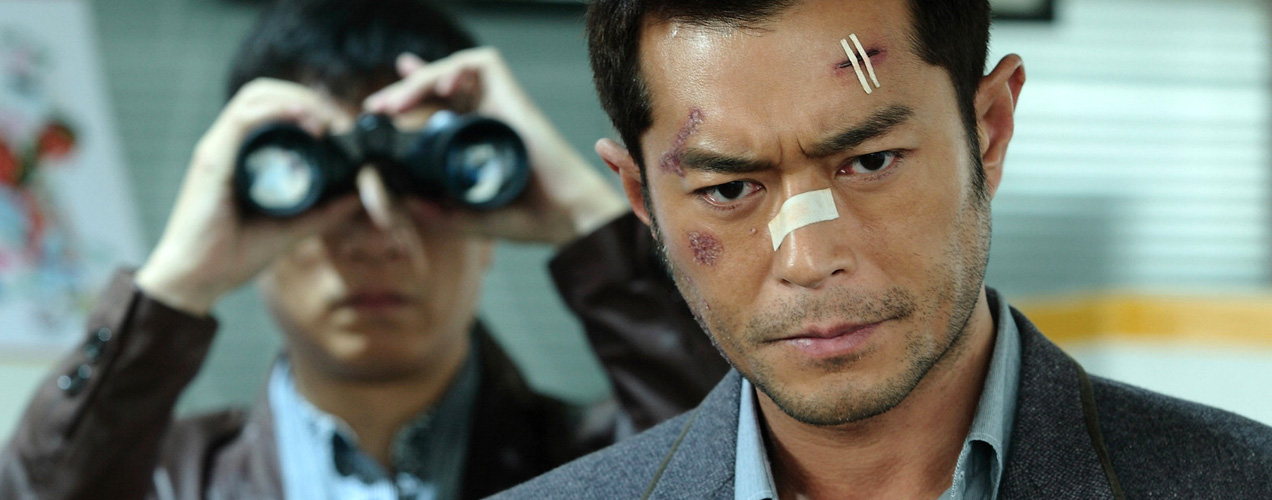
Drug War

 2012 / Johnnie To > Remember the self-righteous Hays Code (( It ruined the ending of many great films, including the otherwise perfect Witness for the Prosecution from the incomparable Billy Wilder.)) that plagued American cinema for over thirty years from the mid-30s into the late 60s? It’s alive and well now in Hong Kong thanks to the Chinese censors. With a population of only 8 million, the island depends on the earnings from a vast mainland audience, but in order to get there, it needs to appease the bodies that control their morality. And after Felix Chong and Alan Mak of Infernal Affairs fame (the film that The Departed was based on) failed at the task with their corporate thriller Overheard, one had hopes that the great Johnnie To would succeed.
2012 / Johnnie To > Remember the self-righteous Hays Code (( It ruined the ending of many great films, including the otherwise perfect Witness for the Prosecution from the incomparable Billy Wilder.)) that plagued American cinema for over thirty years from the mid-30s into the late 60s? It’s alive and well now in Hong Kong thanks to the Chinese censors. With a population of only 8 million, the island depends on the earnings from a vast mainland audience, but in order to get there, it needs to appease the bodies that control their morality. And after Felix Chong and Alan Mak of Infernal Affairs fame (the film that The Departed was based on) failed at the task with their corporate thriller Overheard, one had hopes that the great Johnnie To would succeed.
In following up Life Without Principle, his most mediocre crime film in years, there’s ample evidence in Drug War to show that he was hamstrung by fear of censorship and general working conditions in the mainland. Gone is the tragic beauty of his Election duology and The Mission, films that are gritty, bleak but fantastic cinema due to their absurd realism—films that also could not be made with Chinese funding.
Fear not, though, Drug War is still a To film, which means it’s better than most cinema out there. The master pumps out a film a year with ease at a quality that’s unheard of. Even at its weakest points, the film is enjoyable—just not great or relatively memorable. The worst may be that we only get a couple of complex set pieces, for which To is known and much admired, and the simpler of which stands out for its efficiency and impact. But don’t compare this to the incredibly curated Exiled or the cinematic extravagance of Vengeance. In its effort to keep the story streamlined for a wider audience, Drug War misses out on too many of To’s staples and ends up brazenly two-dimensional.
The best part is Sun Honglei playing a shape shifting police captain who charms multiple sides of the coin. It’s a common plot tactic made great by his acting. Sadly, it’s the kind of performance you’d wish to see in a more memorable film. Add in the fact that nearly every other character in the film feels absurdly stock, it also devalues the performance of the seemingly overachieving Louis Koo, who still hasn’t matched his coolness factor from Accident. Again, it’s hard to not wonder if the flatness of the characters is to match the black and white moral codes of the censors. It’s frustrating to see the work of a heralded director pushed to the edge for potentially commercial purposes, but if it’s going to lead to Election 3, biting the bullet may end up being a worthy venture.

Mystery

 2012 / Lou Ye > Nowhere do we struggle with the nature of good and evil more than when it comes to money. And in an ever-expanding Chinese economy, such dilemmas fly in the face at breakneck speed. So, it’s of little surprise that at the center of Lou Ye’s return to mainland filmmaking (( While it didn’t get a big release locally, Suzhou River is one of the better introductions to modern mainland cinema. )) is the changing subculture of China where corruption and lust intersect to ruin lives, loves and families.
2012 / Lou Ye > Nowhere do we struggle with the nature of good and evil more than when it comes to money. And in an ever-expanding Chinese economy, such dilemmas fly in the face at breakneck speed. So, it’s of little surprise that at the center of Lou Ye’s return to mainland filmmaking (( While it didn’t get a big release locally, Suzhou River is one of the better introductions to modern mainland cinema. )) is the changing subculture of China where corruption and lust intersect to ruin lives, loves and families.
At its core, Mystery is a solid thriller about infidelity, with twists that are genuinely unexpected and satisfying as long as the viewer doesn’t venture into spoiler-filled reviews. What’s impressive—as noted by the film winning best screenplay as well as best picture at the latest Asian Film Awards—is its ability to subtly shift its emphasis from a blatant and obvious (if entertaining) genre film into a social statement.
The beautiful Hao Lei (of Summer Palace fame) stars as a well-off housewife who discovers that all is not proper in her seemingly ideal household, and that her husband may or may not be playing hooky with a girl of bountiful youth. And then the wheels fall off, resulting in an analysis of a curiously amoralistic character who is so not due to nature but rather her circumstances. Surrounding her are pawns of the landscape: A mother with an adorable son whose father seems perpetually absent. A spoiled, rich boy who believes that money buys apartments, fast cars, freedom and innocence. A mother who’s lost her daughter and wants someone to pay for the crime—maybe even literally. And a husband who, sitting next to his wonderful and loving wife, can look deep into her eyes and lie. But why does he lie? Because by all counts, he seems like a good man.
All is not what it seems in this new world of fancy coffee shops and haute shopping malls. But then again, one has to wonder how much of this is China, how much of this is globalization or capitalism, how much of this is the world changing around us. Isn’t this just human nature? Will we always find a way to please that part of us that wants to act on instinct and wantonness, ravaging an otherwise content life?
This is Lou Ye’s first film to premiere in China since he received a five year ban (( Though he did take his skills to France to craft a tragic international love story starring A Prophet’s Tahar Rahim in Love and Bruises.)) for screening the sexually explicit Summer Palace, capturing a dreamlike love affair against the backdrop of Tiananmen Square, at Cannes without the government’s permission. Here, his commentary isn’t focused on the government that has become a shell of itself. Instead, it’s about the country’s progression towards a market economy where an individual’s sense of freedom comes at the expense of a widening wealth gap. It’s a world where the rich sneak past the one-child policy and daughters are buried in cash—sometimes just to keep a little face.

Dragon
 2011 / Peter Chan > Finally, something with flavor: After a series of bland, bloated martial arts/war epics from mainland China, Dragon (or Swordsmen, as it was called previously, or Wu Xia, as it was called at its Cannes premiere) arrives with just enough salt to tend the wound. Half-police procedural and half-actioner, Chan makes good in building depth so that we care about what’s behind the fighting. As Takeshi Kaneshiro’s detective unveils the mystery of Donnie Yen, a common villager with a dubious past, it’s hard not to think of this as a Chinese take on Out of the Past and A History of Violence. Then again, it’s not so much that the film does anything new, but rather that it succeeds in being poignant, focused and rarely tries to hide behind the melodrama that has plagued its peers. Brooding and often brutal, it’s a much-needed kick into an otherwise stagnating genre.
2011 / Peter Chan > Finally, something with flavor: After a series of bland, bloated martial arts/war epics from mainland China, Dragon (or Swordsmen, as it was called previously, or Wu Xia, as it was called at its Cannes premiere) arrives with just enough salt to tend the wound. Half-police procedural and half-actioner, Chan makes good in building depth so that we care about what’s behind the fighting. As Takeshi Kaneshiro’s detective unveils the mystery of Donnie Yen, a common villager with a dubious past, it’s hard not to think of this as a Chinese take on Out of the Past and A History of Violence. Then again, it’s not so much that the film does anything new, but rather that it succeeds in being poignant, focused and rarely tries to hide behind the melodrama that has plagued its peers. Brooding and often brutal, it’s a much-needed kick into an otherwise stagnating genre.

Triple Tap
2010 / Derek Yee > Silliness abound, Triple Tap tries to be profound in ways that come off completely insulting. Whether we’re talking about its corporate fraud angle, which is overwrought with short-hand money siphoning techniques that would make even moderately experienced financial investors cringe, or looking at its overarching game of cops and robbers that spends more time explaining banal theories than actually building proper tension, Yee’s latest effort is mediocre at best. At worst, it’s easy to consider it one of the worst films of the year save the presence of the beautiful Li Bingbing and the increasingly charismatic Louis Koo. Was One Nite in Mongkok a fluke? Though I would hope not, there’s not much confidence in Yee’s future projects at this moment.
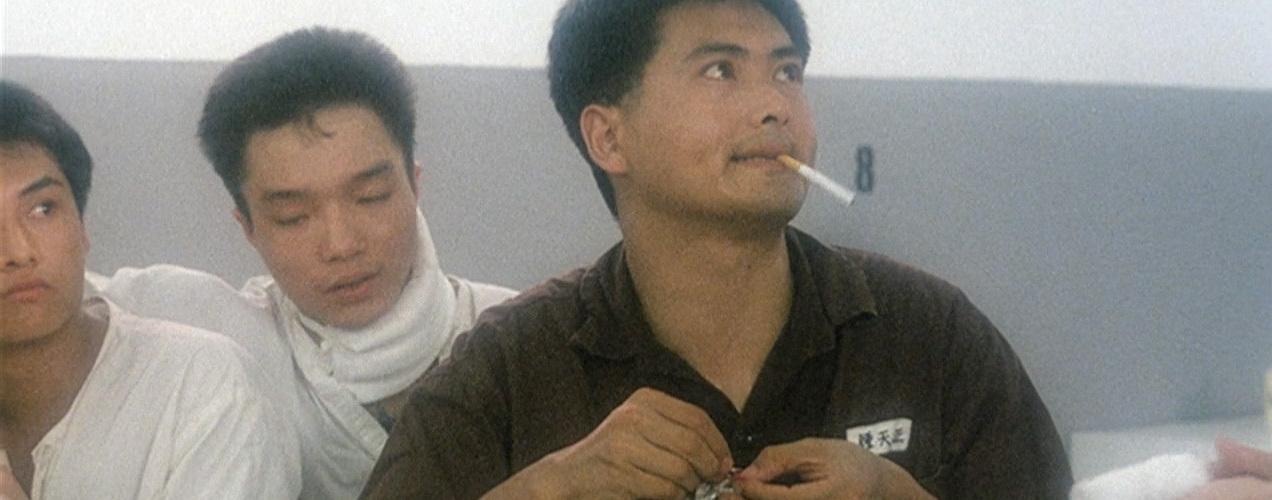
Prison on Fire
1987 / Ringo Lam > It’s a bit tragic that A Prophet may have forever ruined expectations for prison films. Trendsetter Lam’s take on the genre tries very hard to shine through the brutal experience of being behind bars but never really breaks through with anything particularly memorable. Prison on Fire ends up being a fairly ho-hum tale with a few stereotypical characters saved primarily by another fantastic performance by Chow Yun-Fat, who’s considerably more watchable when directors utilize his abundant charisma. Consider this an appetizer of sorts for their electrifying joint-effort in Full Contact.

Accident
2009 / Soi Cheang > Easily the most accessible film Cheang has made in the latter half of the decade, Accident is a cryptic piece about assassins who construct seemingly random chains of events to do their dirty deeds. On the outside, the package is filled with the kind of polish meant for a classy thriller, but underneath the hood, the focus is really about self-paranoia, or rather, when your business is making illusions, at what point does your reality cease to exist? Produced by Johnnie To, the film also acts as a showcase for Louis Koo’s acting abilities. After a career of being a slighted pop performer, he’s really starting to carve out a name for himself as Hong Kong’s go-to frontman (also see Election 2 and Overheard). Accordingly, Cheang also continues to impress with fresh, genre-hopping efforts similar to fellow countryman Edmond Pang that gives quite a bit of hope to the future industry of the country that brought us both John Woo and Wong Kar-Wai.
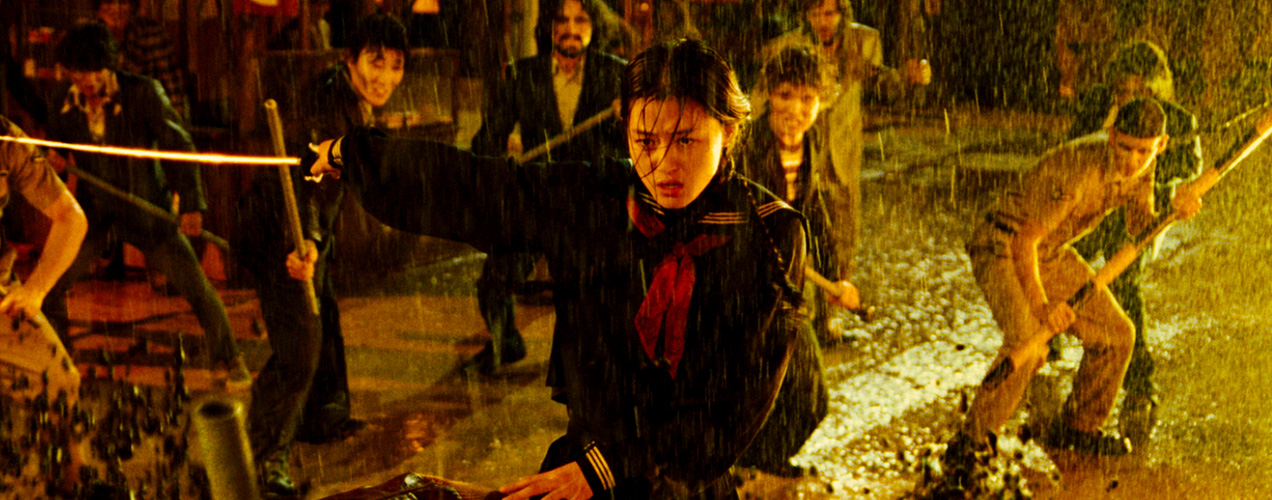
Blood: The Last Vampire
2009 / Chris Nahon > Tragically boring. When you’ve got the confluence of vampires, live-action anime and Korean megastar Jeon Ji-Hyun’s English-language debut, you expect at least something. Not necessarily storytelling or character development, but at least lots of awesome fights and maybe some skin. But there too, Blood fails. What a terrible intro to Gianna Jun (as she’ll be known stateside), who gained much of her fame through her hard-knock, lovable lead in the rom-com sensation My Sassy Girl. The lack of adequate roles for well-known Asian actresses continue to leapfrog their abilities, and unless you count Gong Li’s serviceable turn as a half-Chinese, half-Cuban drug-mama in Miami Vice, the category continues to remain empty and shameful.
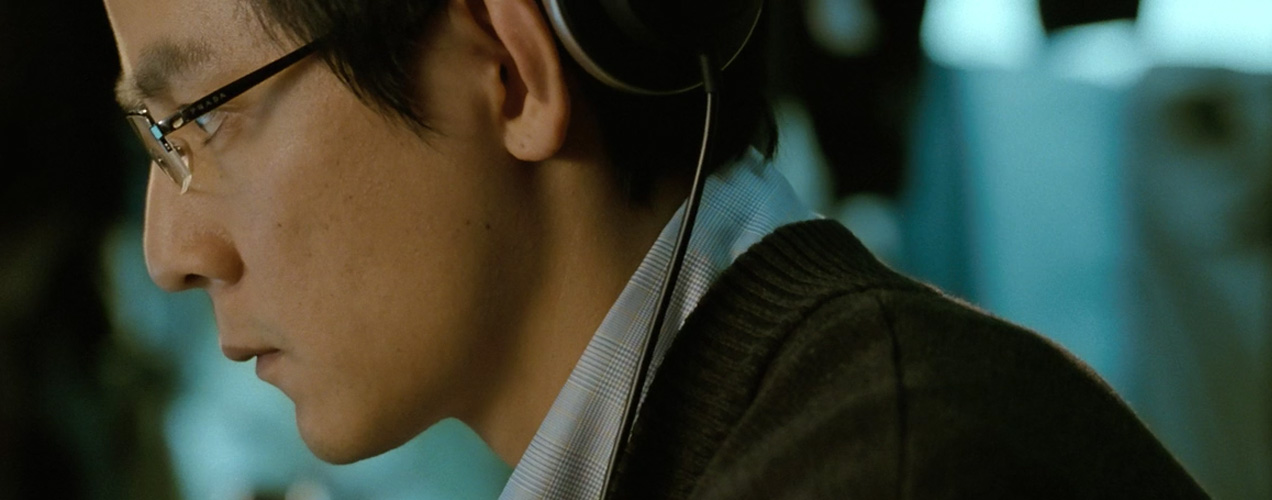
Overheard
2009 / Felix Chong & Alan Mark > Every Hong Kong filmmaker now has to take into effect mainland China’s demands for the righteousness of mankind, whether it be the clutches of morality or the dearest of cultural sensitivities. If they didn’t, the single largest portion of their box office receipts go out the door. And because of that, we’re back to adjusting for the 21st century’s version of the Hays Code all over again. Earlier this year, the guys behind Infernal Affairs (i.e., the basis for The Departed) released Lady Cop & Papa Crook after a six month delay because of disagreements with the Chinese censors. Critics bashed it. Lesson learned: If the bad guys can’t win, make sure somehow everyone loses. In Overheard, Chong and Mak make sure that they can utilize this technique into fitting their vision into China’s demands.
The problem is this, however: The tone of the film never becomes concrete. Thematically, we don’t know what the focus is. It starts off being a wiretapping thriller that turns into a morality dilemma for cops. That’s fine, but then we’re thrown into some reactionary revenge sequences. As it happens, vengeance isn’t always necessary or appropriate, even if the audience wants it. And if the actual act of vengeance isn’t satisfying, then it isn’t worth putting forth to begin with. Tricky, yes, but the Chinese censorship dilemma has forced directors and writers to into a corner from which they’ll have to climb their way through. This may have been one of the best efforts at it, but there’s still some way to go.

